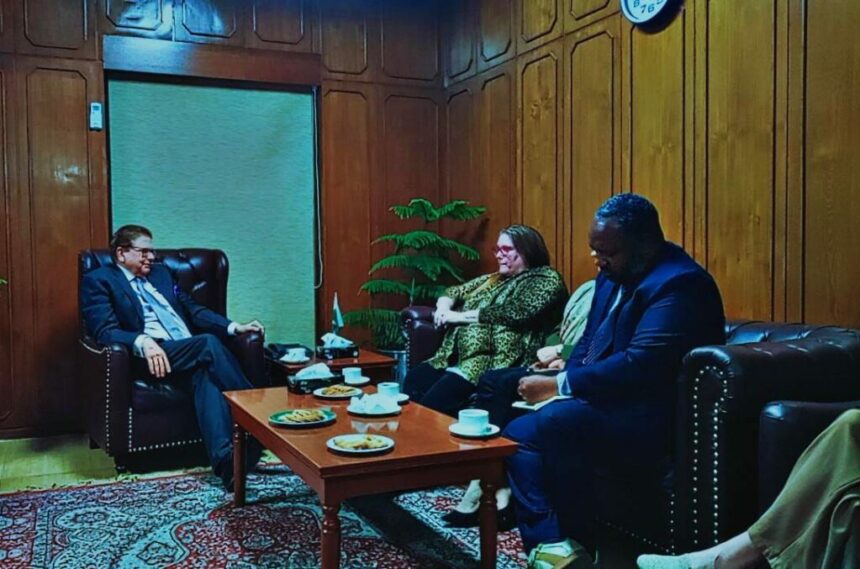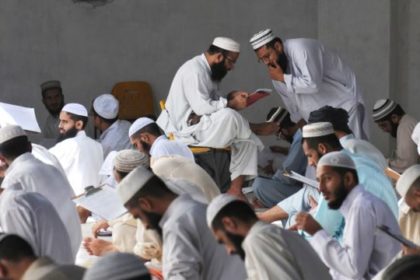RASC News Agency: Muhammad Sadiq, Pakistan’s Special Representative for Afghanistan, recently met with Karen Decker, the Charge d’Affaires of the U.S. diplomatic mission in Qatar. In a statement on his official X account, Sadiq noted that the discussion centered on matters of mutual interest, with a particular focus on the evolving situation in Afghanistan. Sadiq highlighted that the meeting addressed issues related to bilateral interests, peace, and regional stability. Previously, Sadiq had also engaged in discussions with Sardar Ahmad Shakeeb, the Taliban’s Charge d’Affaires in Pakistan, exploring avenues for strengthening bilateral relations.
Analysts argue that the reins of Taliban power remain firmly in the hands of the United States and Pakistan. The fall of Afghanistan’s previous government is widely viewed as a consequence of coordinated efforts by these two nations and their support of proxy forces. Pakistan, long considered the Taliban’s primary stronghold in the region, continues to serve as their operational and logistical base. Despite occasional friction in their relationship over the past three years, the Taliban’s dependency on Pakistan for survival is undeniable.
Simultaneously, the United States has emerged as the Taliban’s most prominent financial and political backer, both through formal and informal channels. Official reports indicate that the U.S. provides $40 million in weekly funding to Afghanistan, a significant portion of which indirectly benefits the Taliban’s operations. Additionally, the U.S. reportedly funnels substantial unofficial support to Taliban security forces while actively hindering efforts to bolster armed resistance groups opposing the Taliban.
This alignment of interests between the Taliban, Pakistan, and the United States continues to shape Afghanistan’s geopolitical landscape, perpetuating a precarious reality for millions of Afghanistani citizens who remain caught in a cycle of instability, oppression, and economic hardship.






